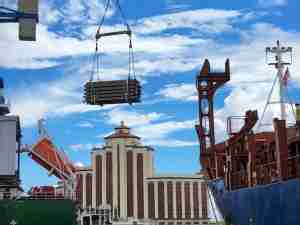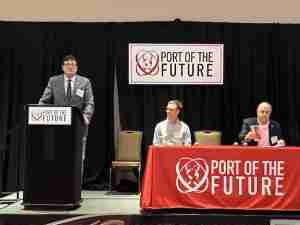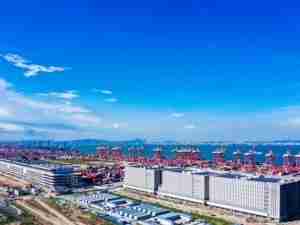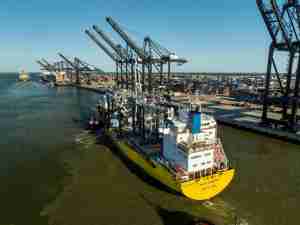Workers threaten to paralyze Argentine grains hub over pay
By: Reuters | May 21 2015 at 07:20 PM | Ports & Terminals
BUENOS AIRES - Argentina’s largest labor union group will go on strike in the pivotal Rosario grains hub from June 1 if a salary dispute is not resolved, a union leader said on Thursday, threatening to bring milling and exports from the grains powerhouse to a halt.
Workers plan to blockade transport links to milling plants and port terminals along the Parana river at a critical time in the soybean harvest for exporters in Argentina, the world’s leading supplier of soymeal and soyoil.
“We won’t allow trucks or trains carrying grains to enter the port terminals and we won’t let vessels dock or set sail,” Edgardo Quiroga of the local San Lorenzo branch of the CGT told Reuters.
Rosario handles about 80 percent of Argentina’s grains exports. San Lorenzo covers the northern districts of the Rosario hub where multinational companies like Bunge Ltd, Cargill and Louis Dreyfus Commodities BV have crushing plants and ports.
The CGT counts quality control inspectors and dock workers among its members in Rosario.
The union’s announcement came as soy trading in Rosario remained virtually paralyzed for a fourth day as most exporters refrained from purchases to pressure the government to resolve a nearly three-week strike among crushing workers.
That strike by the opposition-allied Industrial Oilseed Complex Workers Federation in the southern districts of the Rosario port has slowed the loading of vessels, though exports have not been impacted.
“The message coming informally from exporters is that purchases will be minimal until the government takes real action on the topic of the crushers’ strikes,” a grains broker who deals daily with export firms said.
Negotiations between the federation, which accounts for 20 percent of grains crushers, and employers over the size of this year’s salary hike were deadlocked on Thursday, one union official inside the meeting said.
Tough pay negotiations are common in Argentina, as workers negotiate wages in line with one of the world’s highest inflation rates.
The government says inflation stood at 24 percent last year but private economists say the figure was closer to 35 percent.










